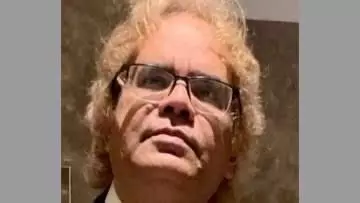Fake cardiologist causes multiple deaths in MP; Hyderabad doctors sound alarm on systemic gaps
Seven lives lost to fake cardiologist in MP: NHRC sends notice; experts urge nationwide verification
By Newsmeter Network
Hyderabad: A doctor in Madhya Pradesh, unqualified to practice cardiology, has been allegedly held responsible for the deaths of seven patients.
The National Human Rights Commission (NHRC) has found multiple irregularities in the case where a fake doctor posed as a cardiologist and treated patients at Mission Hospital in Damoh, Madhya Pradesh.
Following its enquiry, the NHRC has issued a set of urgent recommendations to both the Government of Madhya Pradesh and the Union Ministry of Health and Family Welfare, demanding action and compliance within four weeks.
Compensation, criminal charges and systemic checks
The NHRC has recommended that Rs 10 lakh be paid as relief to the next of kin of each of the seven deceased patients.
It has also directed the Madhya Pradesh government to register FIRs against the impersonating doctor as well as the owner of the hospital. Disciplinary action has been advised against the police personnel concerned and the Chief Medical and Health Officer (CMHO) of Damoh for negligence.
In addition, the commission has called for:
- A State-level audit of all doctors working in catheterisation (cath) labs to confirm qualifications.
- Investigation by the Economic Offences Wing and the Chief Commissioner of Income Tax (Exemptions) into possible misuse of the Ayushman Bharat health insurance scheme and questionable foreign funding received by the hospital.
- The Union Health Secretary to issue a national directive to verify cath labs across India and ensure the Ayushman Bharat scheme is implemented ethically and transparently.
This is a systemic failure, say Hyderabad cardiologists
Cardiology experts in Hyderabad say the Damoh case should serve as a wake-up call, not just for Madhya Pradesh but for the entire country.
Dr Akhil Reddy, an interventional cardiologist, said the incident reflected a deep breakdown in hospital accountability: “That an unqualified person could perform invasive procedures in a cath lab reflects not just hospital-level negligence—it’s a systemic failure. The NHRC’s recommendations are justified, but we need long-term enforcement mechanisms, not just one-time audits.”
He also called for the creation of a centralised, publicly accessible registry of certified interventional cardiologists, with mandatory hospital reporting linked to it.
“Private hospitals should not be allowed to hire cath lab operators without verification from this registry.”
Call for better oversight of government schemes
The case also involved potential misuse of funds under the Ayushman Bharat Pradhan Mantri Jan Arogya Yojana (PM-JAY), a Central health insurance scheme intended for vulnerable families.
Dr Mehrunnisa Fatima, a Hyderabad-based cardiologist and medical ethics researcher, said the misuse raised concerns about patient safety under government-funded schemes.
“When institutions use Ayushman Bharat funds to admit patients under false pretences or through unqualified doctors, it’s not just financial fraud—it’s medical endangerment.”
She endorsed the NHRC’s proposal to involve the Economic Offences Wing and the Income Tax department: “Hospitals receiving public funds or tax-exempt donations must be held to a higher standard of transparency.”
Need for nationwide protocols
Doctors in Hyderabad stressed that India lacks a standardised, enforceable system for cross-verifying specialist credentials, especially in high-risk domains like cardiology, neurosurgery and oncology.
Dr Praneeth Suresh, a consultant cardiologist at Sunshine Hospitals, said that a robust digital verification mechanism was long overdue.
“This isn’t the first time an unqualified person has operated in a high-risk medical setting—and it won’t be the last unless we build national-level protocols. The Union Health Ministry must work with State councils to digitise and standardise specialist licensing records, and hospitals should be penalised for non-compliance.”
The NHRC has directed all concerned authorities to report back within four weeks. The outcome of these actions is expected to shape future policy on hospital regulation, medical credential verification and oversight of government health schemes.
Dr Fatima said the case should not be dismissed as a one-off scandal: “The tragedy in Damoh isn’t an isolated event—it’s a signal. If we don’t act now, the cost will be paid in lives.”